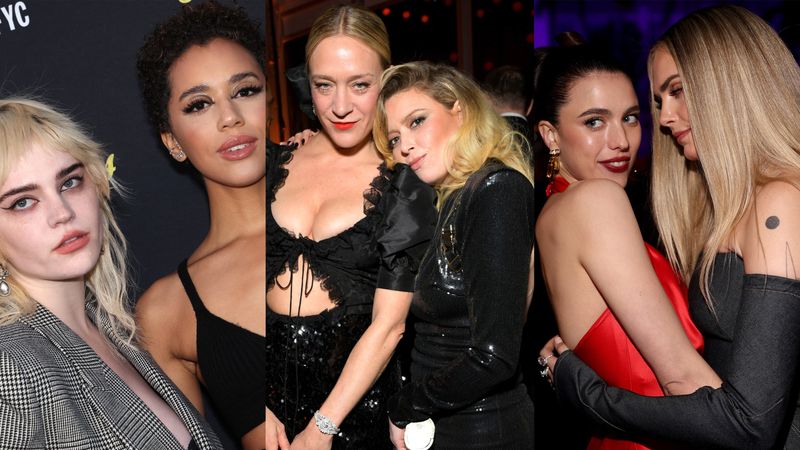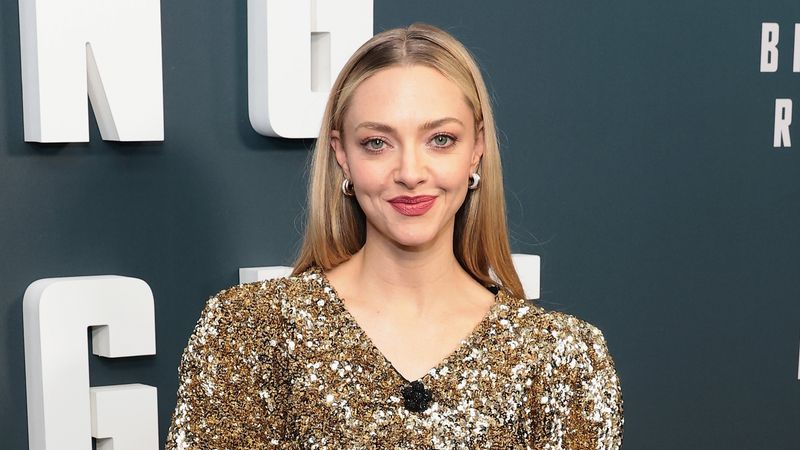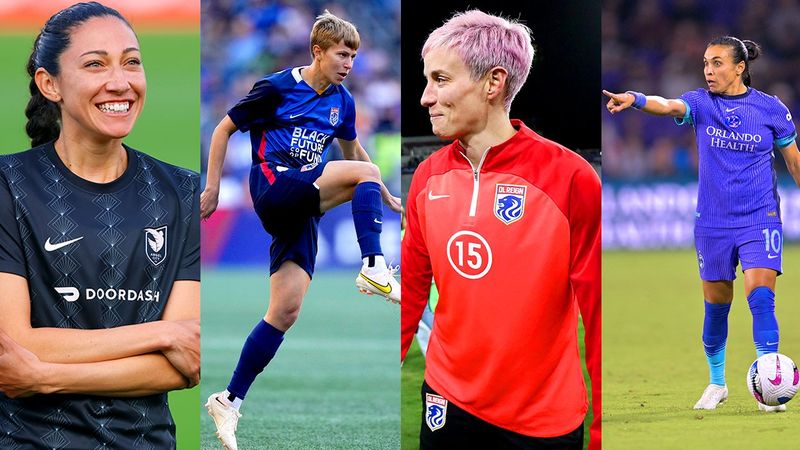In the tradition of illustrated memoirs like Fun Home, Portland-based queer illustrator Nicole Georges's first full-length graphic novel, Calling Dr. Laura, takes readers down a page-turning rabbit hole of familial deception, secret histories, and half-truths. But don't let that scare you off. A poignant story told through honest, disarming black-and-white illustrations and pointed observations on life, love, and family, the novel is a compelling and riveting memoir rooted in the peculiarities of life. The book, published January 22 and now available through Houghton Mifflin Harcourt, is part family-mystery, part coming-out story, and entirely authentic.
When Georges was two years old, her mother told her that her father was dead. Two decades later, on a trip to visit a psychic with her girlfriend, the psychic tells Georges that her father is alive and well. Georges's older sister confirms the psychic's proclamation and admits that Georges's mother and two sisters have been lying to her since she was a child. The revelation sends Georges into a tailspin about her identity, forcing her to come to terms with a family history full of deception, abuse, an ever-rotating cast of unfit father figures, and a homophobic, distant mother. Utterly confused, Georges turns to — of all people — conservative radio talk show host Dr. Laura Schlessinger for advice. The no-nonsense radio host gives Georges a stiff talking-to, ultimately providing the push she needs to take her future into her own hands. But that can't happen until Georges clears up the past, which will involve some serious conversations with her mother, sisters, partner — and maybe even a family she didn't know existed.
SheWired caught up with Georges, who's currently touring the West Coast promoting Calling Dr. Laura, to find out what prompted the 'zinester to dive into a novel, what advice she'd offer for young queer graphic artists, if she's still on speaking terms with her mother, and which beasts the self-described "friend to creatures" can't wait to get her hands — and her pen — on.
SheWired: Given that your background is in publishing 'zines, what was the transition like, moving to a book?
Nicole Georges: It was a big transition. Usually, in my 'zines, I'm used to just photocopying diary entries — illustrated or otherwise — and so, for the book, it took about five years, from start to finish. And it involved making a book proposal, and then sitting down and thumbnailing, or making tiny sketches, of what every single aspect would look like, and spending a lot of time drawing it. So it took a lot more planning, and then I got to go through it with editors, which was really nice.
So that was something that wasn't present for your 'zine, Invincible Summer?
No. I think that the second volume of Invincible Summer, that got published as a book, there was a hand-written typo on the first page, or maybe even on the title page. [Laughs] Needless to say, I had never had an editor looking over my shoulder before, giving thoughtful advice.
And was that nerve-racking, or did you feel like, overall, it was a positive experience?
It was great. I really liked it. I feel like it really helped me not take for granted that the readers knew everything. She made me kind of understand parts where I had left out bits of the story, because I just took for granted that people would understand what I was talking about. It helped me bring the reader along with me, which was nice.
I think you did a great job of that. I will admit that I read the book in a single sitting — I couldn't put it down.
Thanks!
It's just fascinating. And I think one of the most interesting parts is how you use a nonlinear narrative structure. How did you decide to go with that structure rather than something a little more "straight?"
I'm not sure. When I was first putting it together, I had a couple of straight narrative lines in my head, like the relationship was kind of a straight line that I could follow. And for the childhood things, there were little bits that definitely went together in a straight line, but other supporting things that just seemed important to say, but I wasn't even sure where they fit in.
So, when I started writing it, I was just writing all these little vignettes that I knew, or hoped would go together somehow. I ended up drawing the childhood parts different than the adult parts, because as I was going through and trying to sketch out the initial version of the book, I realized I just didn't enjoy drawing myself getting traumatized as a child.
Imagine that!
Yeah, for the present-day things I was using photo references — finding photos of myself in my 20s and drawing those. But then for the child ones, finding pictures and then having to extract a hard emotion or trauma out of it just wasn't that fun. And I knew I would be working on this for a really long time, so I needed to find a way to draw what I needed to draw, but make it enjoyable and not horrible. So I drew it like that, because it's just a way that I like drawing anyway. I drew the childhood pages a little bit more simple.
And I think that certainly helps convey that those memories took place when you were younger and that looks more like that would have been what you might have drawn then.
Also, since my memories from then are from so long ago, and they're kind of hazy, [the illustrations] are kind of stark and bare-bones like that. As opposed to the rich memories that happened very recently.
More on next page...
\\\
(continued)
Speaking of certain things that happened recently, how much of Calling Dr. Laura is a true-to-life, direct memoir, and how much of this is fictionalized?
Everything is true from either stories that I have been told or from my perspective. There are a couple characters who are composite characters, but besides that, everyone else is my actual interactions with them. And everyone's names have been changed and some pertinent details have been changed so that they have a life with privacy. But besides that, it's pretty straightforward, except for the fact that a lot of my memories were based on things that either my sisters or my mother told me. Then at some point in the story, I think you realize that my mother isn't the most … trustworthy narrator. So it's true from my perspective, but who knows what of the stories she told me are true and not true.
On that note, has your mother seen the book?
She has not seen the book, but she knows about it.
OK. What were her feelings about it? She doesn't seem to be the type to hold her opinions to herself.
No, but the thing about the book is that everybody in my family — my mother and my sisters — they understand that I was in a pretty unique position; this kind of semitraumatic position that they all had a part in putting me in. So they've all expressed, in one way or another, that they just want me to do what I have to do to get through it or get over it. My mom in particular, I think that she just would like to let it lie. I don't think that she wants to go out and find the book and dwell on it and talk about it. I think it was bad enough for her that we even had to talk about any of this in the current decade.
And how does that feel for you? Was this the kind of cathartic experience you were hoping it would be?
It definitely changed my relationship with my family a little bit. We definitely had to talk about things that I would have easily not talked about for my entire life. But I guess I didn't tell you this, but right before I signed the contract to do the book, I was getting cold feet about whether or not to do a book about my family while they were still alive. And so I thought it would be appropriate to call a psychic and ask her what I should do. So I called a psychic and asked her if I should do the book now or later, and she said that if there was any time that I was going to do it, it needed to be now, and it was going to take me to a place that I needed to go with my family, whether it was good or bad. And I felt that that ended up being true.
It was hard in some ways, and I personally know the limits of my family. I know my mom's emotional limits, and her limits with the present versus the past, and all of that. But I think it was healing and helpful for my sisters to get this off of their chest and be able to talk about. And it was relief for my mom in some ways to not have to carry the secret around anymore. It's kind of a strange place.
I believe that. Speaking of places, Portland plays a relatively sizable role in this book. How do you think the Northwest mentality and culture has influenced your work? And how different do you think this would be if you were writing this from L.A. or New York?
Well, I think if I was writing it from L.A. or New York, I may not have had time to write it because I had to have so many other jobs at the same time, writing it. I moved [to Portland] without actually knowing anything about the culture, and it's hard for me to say how much of the culture has influenced me, or vice versa. Because when I moved here, I was 19, I was all about 'zines and comics and autobiographical comics, and I already had my same kind of glasses and fashion sensibilities and whatever. I knew that I liked the sort of things that came from the Pacific Northwest. Portland itself has influenced me [because] I've met a lot of amazing comic artists here that have helped expose me to a world of comics that I maybe wouldn't have ordinarily approached. People live here — I got to see Craig Thompson read, or I got to go to a dinner with Art Spiegelman or Joe Sacco. People that are pretty big comic artists that I would have never come into contact with, I don't think. And we also have a very supportive 'zine community here. I work with a place called the Independent Publishing Resource Center — I teach comics there. It's kind of a hive of people who are making their own 'zines and comics and scrapbooks. And not only does that put me in touch with other people who are supportive of my work and want to see the best for my work — which, I have to say, is very Portland. But also, teaching adults comics there also helped me slow down my process and refine my process. And think about the basic principles of comics, which maybe I wouldn't have done right then if I hadn't been having to write lesson plans for adults every week.
That makes sense. Given that you do put lesson plans together every week, do you have any words of advice for aspiring comics or zinesters?
Well, they definitely need to just do it. The number 1 thing that people do wrong is they want to write something, and then they get kind of psyched out. The only way that I got from point A to point B was through trial and error. And putting out comics or diary entries or 'zines, and seeing which parts people responded to, and then holding onto those parts and working with my strengths. And so if I had made a 'zine and then never put it out there or showed it to anybody, I never would have actually gotten positive feedback or had anything to kind of feed myself a scene or give myself a little bit more bravery to put myself out there more and more. I think people just need to do it. Even if they just make 50 copies of something and give it to their best friend and their family and the people whose work they admire.
And the second thing for comic artists is, always pencil your entire book before you ink it. Because I was inking my pages — like, finishing my pages one at a time — before showing them to my editor. And then I ended up having to do a year and a half of edits. Because I had finished a 200-page ink book, and then I met a fantastic editor who had a lot of edits that were very helpful, but then I had to draw 50 new pages. I had to go back and hand-edit all the hand-lettered thing. So in 264 pages, anywhere there was a typo or a spelling correction or punctuation or anything, I had to rewrite those sentences on another piece of paper that was exactly the same size, and then Photoshop it in. It was very consuming. I would personally do that differently.
I think that's a good piece of advice. Now you are just about to embark on an author tour, right?
Yeah.
Has your life changed at all since the publication of the book? Are you anticipating big exciting changes in light of the publication and your tour promoting it.
Gosh, I'm not sure, actually. [Tuesday] night was the first reading for the book, and it was a really big reading, 'cause it was in Portland, so there were, like, 100 people there or something, and it was really exciting. I don't know what's going to happen. My hope is that I just get to go around and talk to comic students, talk to people at libraries and bookstores and venues, and hopefully they'll like the book. If they like the book, hopefully I'll get to do another book. Or do lots of illustrations. That's something I really like to do. And hopefully someday I can do some illustrations about chimps or orangutans. I think that would be really fun.
Why chimps and orangutans, specifically?
I really like nonhuman primates. I really like chimps. And I think a dream of mine has always been to go to Africa and hang out with chimpanzees, but I really don't think that I want to be an animal caretaker. I think I would love it if I could get some kind a job going there, doing an article or a piece of comics journalism about them. That's the kind of thing I think sounds like a lot of fun in the future. I just hope I don't get my fingers bitten off.
Don't miss your chance to meet Georges and enjoy a multimedia reading from Calling Dr. Laura at 3 p.m. Saturday, January 26, at The Last Bookstore in Los Angeles. Click here to see the full schedule of upcoming readings.


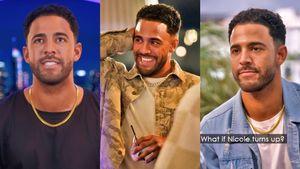




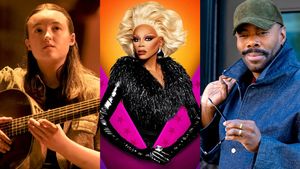








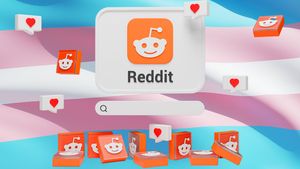
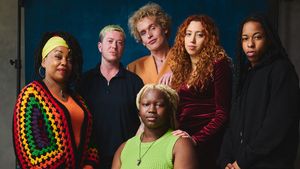












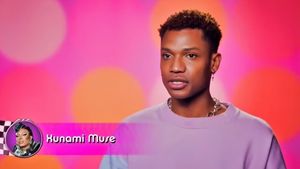


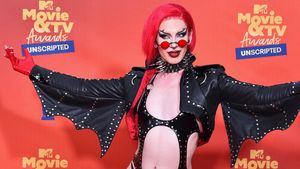



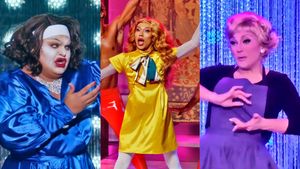






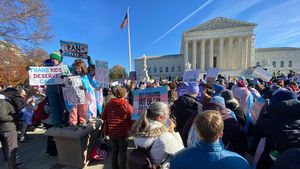

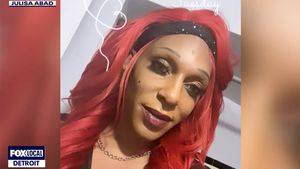
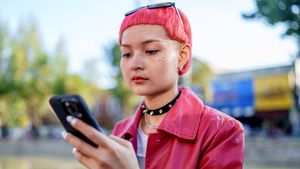









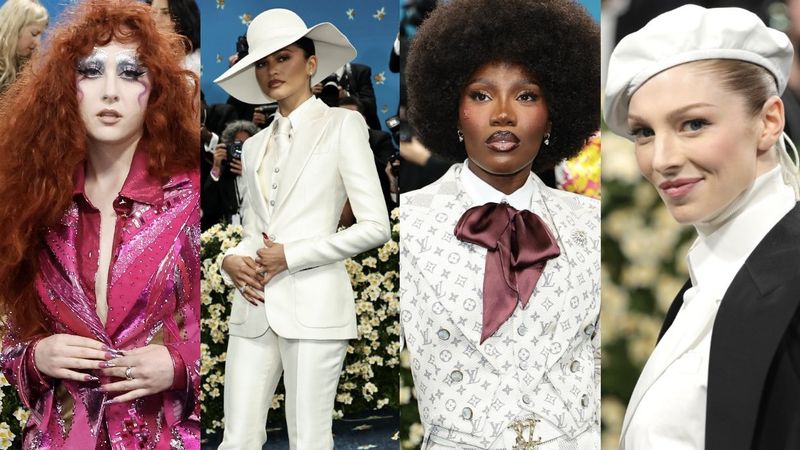



































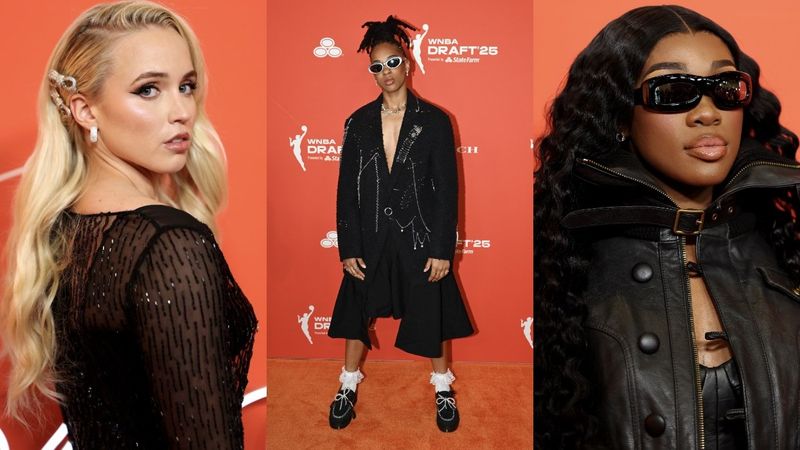
 Cindy Ord/Getty Images
Cindy Ord/Getty Images










